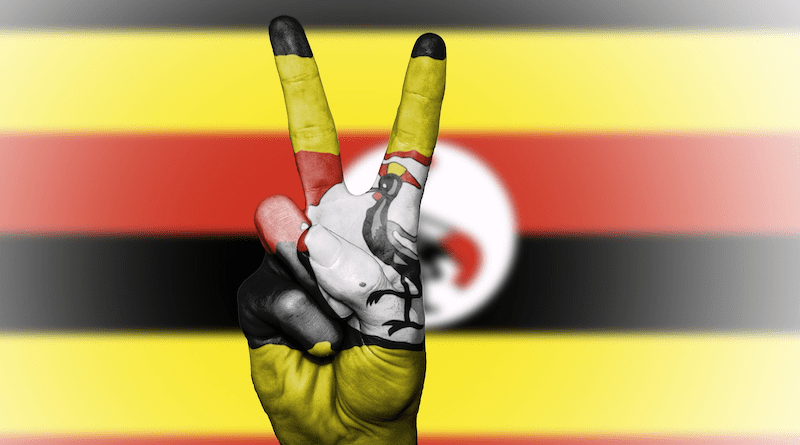Uganda Passes Another Anti-Gay Bill – OpEd
In March, Uganda’s parliament passed sweeping anti-LGBTQ legislation with strict new penalties for homosexuality. The legislation proscribes “the death penalty in cases of ‘aggravated homosexuality,’ defined as sexual relations with someone below the age of 14 or above the age of 75, and for repeat offenders.”
This legislation is a continuation of another anti-LGBTQ law signed by Yoweri Museveni, the country’s long-serving president, in 2014. The legislation, nicknamed “Kill the Gays bill,” was ultimately struck down on procedural grounds.
Despite criticisms from the international community and from prominent human rights activists, Ugandan politicians, religious leaders, and other conservatives welcomed the legislation.
“Our creator God is happy [about] what is happening…I support the bill to protect the future of our children,” said David Bahati, a Ugandan legislator during the bill’s debate. “This is about the sovereignty of our nation, nobody should blackmail us, nobody should intimidate us.”
However, not all Ugandans support the legislation. “If anybody still thinks that you can pass a law to lay a legal basis for hatred – which is what homophobia is – then I can’t support you,” Fox Odoi-Oywelowo, a Ugandan legislator, told Al Jazeera. “Many of the clauses of the bill were, to put it mildly, repugnant.”
Countries like the United States have called on Museveni not to sign the legislation.
U.S. Secretary of State Antony Blinken said the bill would “undermine fundamental human rights of all Ugandans and could reverse gains in the fight against HIV/AIDS.” He added, “We urge the Ugandan Government to strongly reconsider the implementation of this legislation.”
Whether the legislation is signed or not, Uganda’s rightward shift on gay rightsfollows a trend in Africa. Human Rights Watch points out: “Of the 69 countries that criminalize same-sex relations, 33 are in Africa.”
In the fight to protect minority rights, diplomacy must prevail over sanctions.
Diplomacy means understanding that others do not share the same beliefs. There are cultural and anthropological aspects that need to be explored. Although the legislation is quite repugnant, sanctions would only highlight a perception on the African continent of double standards and hypocrisy.
A sovereign country like Uganda would assert that is has the right to decide what is good for its country and Ugandans.
Moreover, the gay rights movement is young and flourishing in many parts of the continent. Many African countries, such as Angola and Cape Verde, have decriminalized same-sex relations in the last decade. Progress has been slow, but it should be encouraged through dialogue.
For Washington to use sanctions to discourage Museveni from signing the legislation might lead to two consequences. First, Museveni’s government and anti-gay rights activists in Uganda and throughout Africa might become emboldened and move further to the right on human rights. Western sanctions did not dissuade Uganda in 2014 and they unlikely would do so now.
What complicates Washington’s lobbying are efforts in the United States to pass stringent anti-trans laws and petty legislation that bans drag performances.
Secondly, sanctions might be seen as interference in the internal affairs of a sovereign country. Anti-West sentiments will grow, and some countries will turn to China and Russia given that both countries are accused of human rights violations.
Last year’s U.S.-Africa summit set a tone for a new partnership between the U.S. and many African countries. The summit was supposed to “deepen and expand the long-term U.S.-Africa partnership and advancing shared priorities, amplifying African voices to collaboratively meet this era’s defining challenges,” but it left some African elites wanting real solutions to their continent’s problems.
Human rights pose a key stumbling block to the nascent partnership between the U.S. and African countries. While gay rights are incorporated in the Western conception of human rights, it is not the case in many African countries. In deeply conservative African countries, there is an open hostility towards gay rights. And it is here that Russia and China see an opening. African leaders are well aware that the Kremlin and Beijing won’t lecture African capitals on human rights.
Like Uganda, many African countries still criminalize same-sex relations. The role of Washington should be to condemn those anti-gay laws but most importantly, Washington should listen to their concerns, but try and convince them to take a different path, and even try to help them be on the right side of history.
This approach might take time, but it is better than economic sanctions that might worsen the plight of gays within Africa. The U.S. needs more allies on the continent. They can be won through strategic diplomacy, continuous persuasion, and incentives. To advance the cause and protect LGBTQ Africans, economic, diplomatic, and financial inducements coupled with diplomacy and dialogue might lead to a better outcome.
This article first appeared at International Policy Digest

